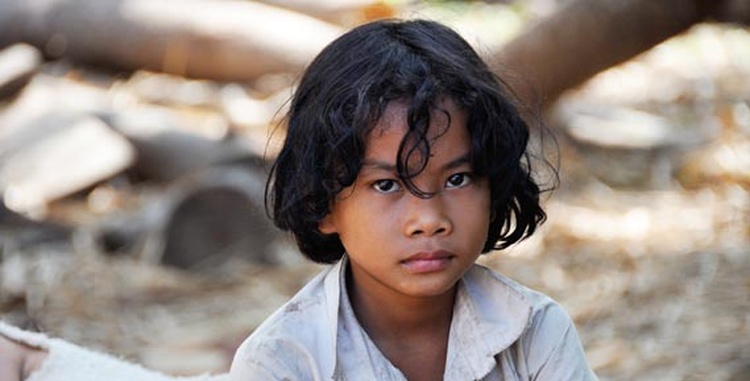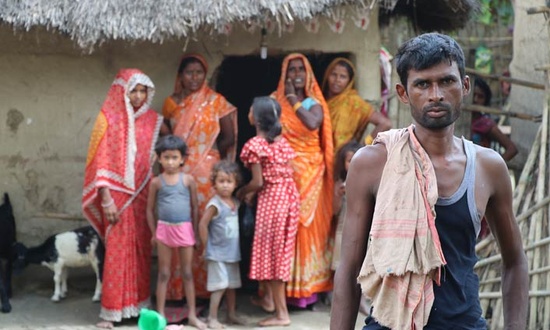Recently a reader sent me this question:
What is your perspective on the documentary Poverty, Inc.? We are giving generously to the Kingdom and are saddened by the waste we see in this film. Do your recommended organizations overcome these issues?
If you’ve not yet heard of the documentary, here’s the synopsis:
The West has positioned itself as the protagonist of development, giving rise to a vast multi-billion dollar poverty industry—the business of doing good has never been better.
Yet the results have been mixed, in some cases even catastrophic, and leaders in the developing world are growing increasingly vocal in calling for change.
Drawing from over 200 interviews filmed in 20 countries, Poverty, Inc. unearths an uncomfortable side of charity we can no longer ignore.
From TOMs Shoes to international adoptions, from solar panels to U.S. agricultural subsidies, the film challenges each of us to ask the tough question: Could I be part of the problem?
As stewards, we should invest wisely in eternity. This means we must give intelligently, based on an accurate appraisal of those to whom we entrust God’s money. In other words, we need to do our homework before we give. This might include asking our pastors for advice, carefully examining a ministry’s publications (including financial statements), meeting with a ministry representative, visiting an office or the mission field and observing the work, or consulting with others in a position to know more intimately what a particular ministry is really like.
It’s true that some organizations are sincere but are culturally insensitive, have poor contacts or distribution methods in foreign countries, and sometimes are attempting short-term solutions that contribute to long-term problems. For example, some local farmers in the Developing World have been put out of business by deliveries of free food from relief organizations. The farmers have worked all year to grow their crops only to see their food go to waste and their efforts go unrewarded because no one will buy food when they can get it for free. Consequently, the farmers lose their incentive and no longer grow food, thus ensuring the crisis will get worse and creating an endless dependence on the outside world. A sensitive relief organization (and there are some excellent ones) will work toward encouraging rather than discouraging local workers and the local economy, with a goal not only of immediate famine relief but also of ongoing famine prevention.
Every good thing can have a bad effect. The solution isn’t to avoid sponsoring children or to never support national ministries, but to exercise great care. Yes, not all of the funds we give will be used wisely, and some may end up being used corruptly. That comes with the territory. But we know that Christ commands us to give, to help the poor and needy, and to lay up treasures in Heaven (Matthew 6:19-21, Matthew 19:21, Luke 12:33). And we know He offers us great rewards for giving. So the solution is not to give less, but to give carefully and wisely while still giving generously.
We dare not ignore what God clearly says to us. These are just a few of dozens and dozens of passages commanding us to give to help the poor:
Give generously to [the poor] and do so without a grudging heart; then because of this the Lord your God will bless you in all your work and in everything you put your hand to. There will always be poor people in the land. Therefore I command you to be openhanded toward your brothers and toward the poor and needy in your land (Deuteronomy 15:10-11).
He who is kind to the poor lends to the Lord, and he will reward him for what he has done (Proverbs 19:17).
He who gives to the poor will lack nothing, but he who closes his eyes to them receives many curses (Proverbs 28:27).
Tabitha “was always doing good and helping the poor” (Acts 9:36). Luke says of Cornelius the centurion, “He and all his family were devout and God-fearing; he gave generously to those in need and prayed to God regularly.” An angel appears in a vision and tells him, “Your prayers and gifts to the poor have come up as a memorial offering before God” (Acts 10:2-4).
The early church leaders emphasized giving to the poor: “All they asked was that we should continue to remember the poor, the very thing I was eager to do” (Galatians 2:10). “Religion that God our Father accepts as pure and faultless is this: to look after orphans and widows in their distress and to keep oneself from being polluted by the world” (James 1:27). (Here’s an excerpt from my book Money, Possessions and Eternity with further perspectives about helping the poor, and more of what God says in His Word about helping them.)
Of course, all these commands to give generously do not negate the need for us to also give wisely. There are important characteristics to look for in any ministry you might choose to support. (These are 19 questions I encourage people to ask before giving to any ministry. An abbreviated version is also available.) But I strongly object to what I’ve heard a number of people say: “I no longer give to relief work since it’s all a waste.” That’s simply untrue. Some waste is always a possibility but “it’s all a waste” is a gross overstatement that ends up justifying lack of generosity and even spiritualizing materialism—“Since it won’t really help others, I’ll just spend it all on myself.”
I’ve seen people discourage giving even to help with natural disasters—but surely this is wrong, given the clear and repeated commands of both testaments to help the poor and needy and helpless. Unfortunately, in my experience, people get depressed and paralyzed when they hear of waste and counterproductive efforts. Rather than working to find the RIGHT ways to TRULY help, they figure that since the money isn’t doing any good overseas, they may as well buy a vacation home or car or new television.
Over the years, Eternal Perspective Ministries has given regularly to World Relief, a ministry that brings immediate help, long-term development, and the gospel of Christ to the needy throughout the world. Because of his first-hand experience in helping the poor and needy, I asked my good friend Dan Brose, former Africa Regional Director at World Relief, to share his thoughts on Poverty, Inc. Dan and Tambry spend part of the year in Burundi and part in the U.S.:
I believe strongly that Americans who want to “help” poor Africans (or poor Americans for that matter) need to seriously consider what is required to properly help. We need to recognize that there aren’t any easy answers. It is really tough and complex. I think that Americans generally know this regarding problems in America, but more often we slip into simplistic thinking about how to solve problems in Africa.
For example, when the film states: “It makes us feel good to show up and help…to be superman,” this is so true, and all of us have experienced the thrill and fulfilment that comes from being on the front lines and meeting an urgent and life-threatening need. But in the end, this is more about us and less about those we are trying to help. The tough work of changing the long-term problems that created the life-threatening event aren’t so exciting, often involving countless hours of desk work and meetings, and far removed from the “action.” But without this long-term effort and sacrifice, nothing will truly be changed.
This statement in the Poverty Inc. film is also true: “As we act, grow and learn—we realize that we are making mistakes and that there is a better way to accomplish our goal.” All of us working cross-culturally have experienced this. Transformation is always a two-way street, and we are transformed as we endeavor to help others to be transformed. But again, it takes a lot of time and is tough work.
So what are we to do?
It’s OK to admit that we don’t have the answers and to take some time to learn. My firm conviction is that the best place for Americans to learn is in their own backyard—volunteering, mentoring, advising, giving, and helping to address difficult and complex problems in the U.S. It might involve mentoring kids after school in the city, volunteering at a local nonprofit clinic, going to the local prison on a regular basis to fellowship and worship together, mentoring young single mothers, advising young men who want to work, or joining a local nonprofit board.
Let’s give even more generously to good organizations working around the world. Not all are the same, and not all are making the mistakes mentioned in the documentary. There are very good organizations that are truly committed to strong partnerships and ensuring that the poor have a voice and a place at the table. Look for organizations that demonstrate these habits:
- They are continuously learning and communicating their mistakes and what they have learned and modified as a result of making those mistakes.
- They don’t “dumb down” the issues, but they take the time and space to educate their donors and constituency—even when that means that they get less income than those organizations who communicate simple and quick solutions through their marketing.
- They elevate their local partners, freely sharing power, relationships, and access.
I encourage people to consider strongly supporting development activities that address some of the root causes of catastrophes. For example, a significant amount of money raised for any disaster or catastrophe should be used for long-term work to address the root causes and to build resiliency of the communities to absorb shock in the future.
Much of what we saw in the Poverty Inc. film revolved around power—who has money, who has food, who makes decisions, who gets the profit, who controls the assumptions, who sets the table, and indeed how we handle power in cross-cultural settings is critical to long-term success and fruitful relationships. Are we as wealthy Americans willing to give up power in order to reverse this dynamic so that power can be in balance? Are we willing to be uncomfortable, to re-examine our assumptions, and to confess our sin? We must allow our pre-conceived notions to be challenged, and we must be humble.
Dan notes it will take generations to address the core problems facing our broken world. Ingrained problems of poverty, corruption, violence, and conflict will not simply disappear. Realistically, we know that such issues will continue until Christ returns, the Curse is reversed, and we experience life on the New Earth. Meanwhile, He has called us to be His hands and feet, wisely and compassionately ministering to the needy through our actions and giving, and doing what we can to share His Good News and to bring a preview of the New Earth to this hurting world.
Above all let me encourage you to GIVE GENEROUSLY and GIVE WISELY. Don’t let the fact that there are immense difficulties in helping the world’s poor keep you from doing what you can to help! Too many people think, “Well, if the money isn’t really helping, I may as well just spend it on myself.” That is not the answer.
From Eternal Perspective Ministries: Also see Randy’s books The Treasure Principle, Managing God’s Money, and The Law of Rewards.
Photo: Pixabay




